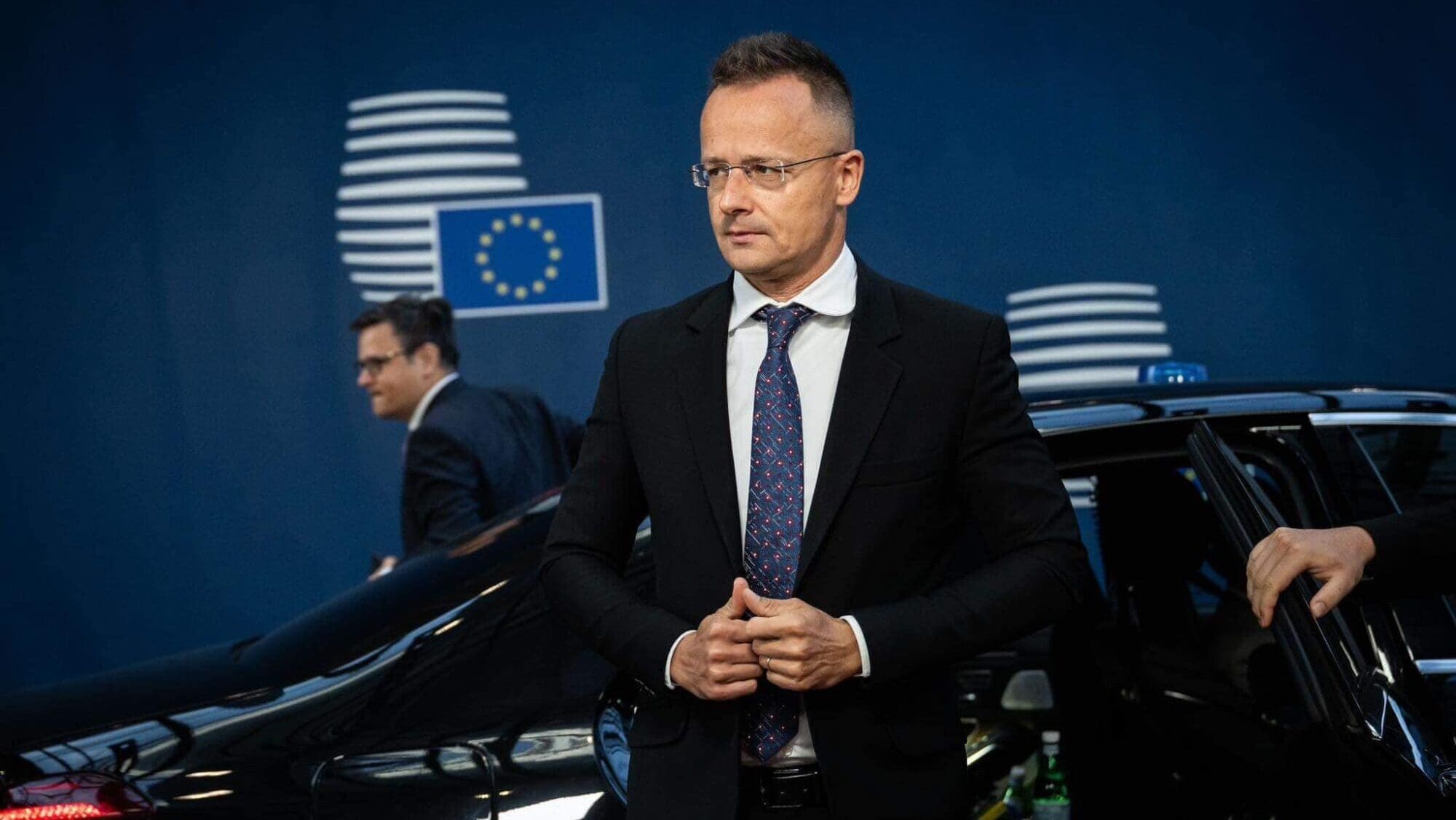
Hungarian Foreign Minister Péter Szijjartó
Photo: Péter Szijjartó on Facebook, 22 July 2024
The EU foreign affairs chief’s proposal to boycott an informal gathering of EU foreign ministers in Budapest in August is “simply childish,” and amounts to nothing more than petty revenge, according to Hungarian Foreign Minister Péter Szijjártó. The minister attended the EU foreign ministers’ meeting on Monday, July 22nd in Brussels, where Hungary was once again criticised for diverging from the EU’s preferred policy on Ukraine.
“We do not accept any restrictions on our sovereign foreign policy,” Szijjártó told reporters in Brussels.
EU foreign ministers used their meeting on Monday in Brussels to lambast Hungary once again, on the grounds that Prime Minister Viktor Orbán visited Russia and China.
Orbán recently visited Kyiv, Moscow, Beijing, and Washington D.C., and held talks with the leaders of Ukraine, Russia, China, and Turkey, as well as with former U.S. President Donald Trump, in what Orbán called a peace mission. The Hungarian conservative prime minister said he wants to open up channels of dialogue with all participants in the war, and with the global powers that could influence its outcome. He has shared his proposals with EU leaders about the possible first steps that could lead to peace.
As fragments of my report to #EUCO President @CharlesMichel on my #peacemission have surfaced, I decided to release the whole document for the sake of clarity and context.https://t.co/S55UQyZ8pd
— Orbán Viktor (@PM_ViktorOrban) July 18, 2024
His peace mission, however, has been decried by most of the EU leaders, some of them calling it appeasement of Russian President Vladimir Putin.
On Monday, EU foreign affairs chief Josep Borrell cynically drew a parallel between Orbán’s visit and Russian missile attacks on Ukraine, saying: “Just immediately after the visit of Prime Minister Orbán to Kyiv, and to Putin in Moscow, a children’s hospital was destroyed, hit by Russian rockets creating a lot of casualties among children in this hospital.” He dismissed Budapest’s comments that the EU was pushing for war:
The European Union is not pushing for war; it is not in [sic] the war side; it is in the war defending Ukraine in front of an aggression.
The Brussels elite has also criticised Orbán for engaging in talks on behalf of the EU, despite the prime minister making it clear that he was only conducting bilateral negotiations. Hungary took over the role of the rotating Presidency of the Council of the European Union on July 1st, and Orbán started his tour one day later.
Hungary has been the only EU member state since Russia’s invasion of Ukraine began two-and-a-half years ago to decline sending weapons to Ukraine. It says military aid is only prolonging the war when the EU should be looking to secure peace instead.
Hungary has also refused to support the EU giving €6.5 billion worth of arms deliveries to Ukraine through the so-called European Peace Facility—an EU-backed fund that is supposed to “enhance the EU’s ability to prevent conflicts, build and preserve peace and strengthen international security and stability,” but which has provided billions of euros in military aid to Ukraine.
Eurocrats and EU institutions—including the European Commission itself—are currently trying to outdo each other in their efforts to boycott, discredit, and undermine the work of the Hungarian presidency. As we recently reported, Borrell planned to organise a foreign ministers’ meeting in Brussels at the end of August, on the same day Hungary is supposed to be holding an informal foreign council gathering in Budapest.
Borrell’s sole reason was none other than to spite Hungary. His vengeful efforts seem to have failed, as not enough member states signalled their support for a boycott at Monday’s meeting.
Luxembourg’s Foreign Minister Xavier Bettel told reporters he would go to the informal meeting at the end of August, saying it was important to keep the dialogue with Budapest. Spanish Foreign Minister José Manuel Albares said “there can be no boycott within the European Union.” Slovenian Foreign Minister Tanja Fajon said Slovenia was not in favour either unless there was a collective EU decision.
As Péter Szijjártó said:
We were faced with a huge, coordinated, aggressive pro-war hysteria, attacking, and wanting to discredit the Hungarian peace mission and pro-peace policy.
The foreign minister emphasised that the EU’s strategy on Ukraine has failed, because we are further away from peace than ever, and sanctions imposed on Russia have done more harm to the EU’s economy than Russia’s. He decried EU leaders for labelling anyone fighting for peace as “pro-Russian.”
Péter Szijjártó also harshly criticised Ukraine for halting oil deliveries from Russia to the EU by sanctioning the Russian company Lukoil. Hungary and neighbouring Slovakia have been greatly effected, as a third of Hungarian, and 45% of Slovakian oil imports stem from Lukoil.
The Lukoil decision by Kyiv “fundamentally threatens the security of our energy supply,” Szijjártó said, adding that it is an “unfriendly” act by a country that relied on Hungary for 42% of its electricity imports in June. The foreign minister said that Ukraine was in violation of its association agreement with the EU, and that Hungary and Slovakia jointly asked the European Commission to mediate a consultation procedure with Ukraine. “The Commission has three days to execute our request, after which we will bring the issue to court,” he added.
🇭🇺🇸🇰 FM Péter Szijjártó announced that Hungary and Slovakia have initiated a consultation process with the EU against Ukraine for halting oil supplies. Speaking in Brussels, he stressed that the Ukrainian decision jeopardizes energy security for both countries, given that they… pic.twitter.com/t2zfPVXGP6
— Zoltan Kovacs (@zoltanspox) July 22, 2024
